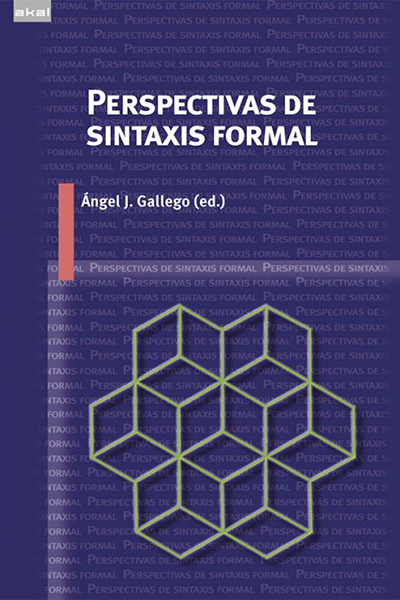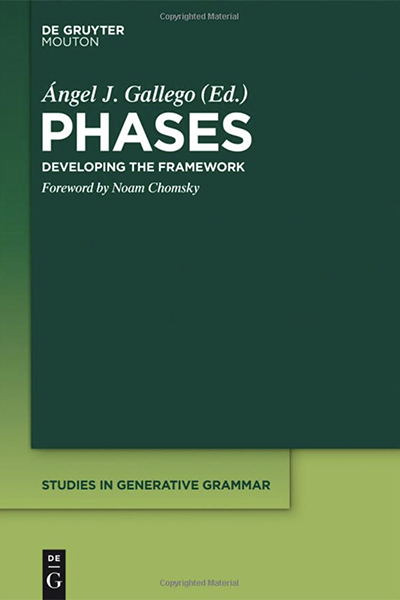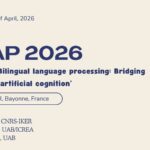2 octubre, 2018
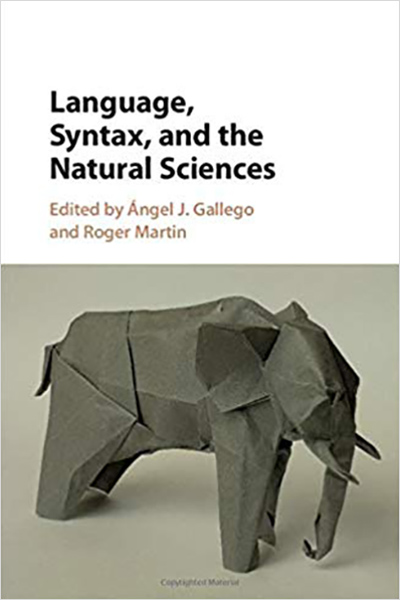
Autors:
Ángel J. Gallego (Ed.), Roger Martin (Ed.)
Títol:
Language, Syntax, and the Natural SciencesEditorial: Cambridge University Press
Data de publicació: 2018
Pàgines: 378ISBN13: 9781107152946
Més informacióLanguage, apart from its cultural and social dimension, has a scientific side that is connected not only to the study of 'grammar' in a more or less traditional sense, but also to disciplines like mathematics, physics, chemistry and biology. This book explores developments in linguistic theory, looking in particular at the theory of generative grammar from the perspective of the natural sciences. It highlights the complex and dynamic nature of language, suggesting that a comprehensive and full understanding of such a species-specific property will only be achieved through interdisciplinary work.
4 abril, 2017
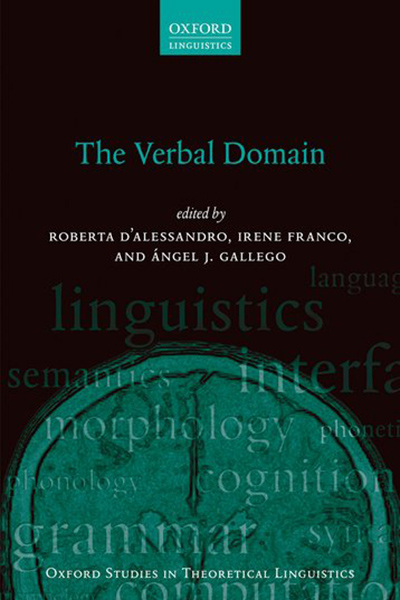
Autors:
Roberta D'Alessandro, Irene Franco & Ángel Gallego (eds.)
Títol:
The Verbal DomainEditorial: Oxford University Press
Data de publicació: 2017
Pàgines: 344ISBN13: 9780198767886
Més informacióThis volume features cutting-edge research from leading authorities on the nature and structure of the verbal domain and the complexity of the Verb Phrase (VP). The book is divided into three parts, representing the areas in which contemporary debate on the verbal domain is most active. The first part focuses on the V head, and includes four chapters discussing the setup of verbal roots, their syntax, and their interaction with other functional heads such as Voice and v. Chapters in the second part discuss the need to postulate a Voice head in the structure of a clause, and whether Voice is different from v. Voice was originally intended as the head hosting the external argument in its specifier, as well as transitivity. This section explores its relationship with "syntactic" voice, i.e. the alternation between actives and passives. Part three is dedicated to event structure, inner aspect, and Aktionsart. It tackles issues such as the one-to-one relation between argument structure and event structure, and whether there can be minimal structural units at the basis of the derivation of any sort of XP, including the VP.
18 juny, 2015
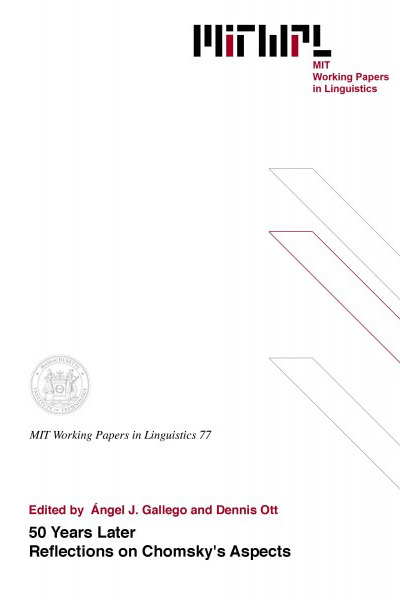
Autors:
Ángel J. Gallego and Dennis Ott (eds.)
Títol:
50 Years Later: Reflections on Chomsky’s AspectsEditorial: MITWPL
Data de publicació: 2015
Pàgines: 292A collection of works reflecting on Chomsky's Aspects of the Theory of Syntax, with a foreword by David Pesetsky and a preface by Noam Chomsky.
This volume is a celebration of Aspects’ multifaceted impact on the field of linguistics, and a reflection on some of its leading themes 50 years into the game. As the reader will no doubt notice, the contributions in this volume differ quite significantly, ranging from short remarks to detailed technical analyses.




